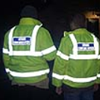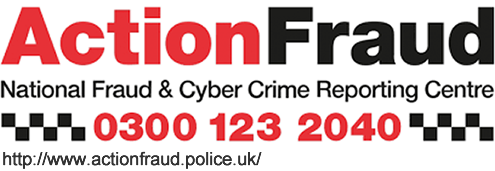Crime and anti-social behaviour
This page is about tackling and reporting crime and anti-social behaviour in St Albans District, plus sources of advice and guidance.
Anti-social behaviour - information
Anti-social behaviour can have a serious effect on quality of life and we treat reports seriously. It covers a wide range of behaviours and is dealt with by a number of Council departments. Visit the links below for information and to report the following:
- Abandoned Vehicles
- Bonfires
- Dangerous or nuisance dogs
- Dog fouling
- Fly tipping
- Graffiti
- Noise
- Pests
- Illegal encampments
You should report harassment, threats or violent behaviour directly to the police.
You can report the following types of serious anti-social behaviour by logging in to MyStAlbans (or email contactus@stalbans.gov.uk).
- Use of premises to deal or cultivate drugs
- Modern Slavery
- Concerns about extremism and terrorism (Prevent)
- Gang and organised criminal activity
- Large scale and recurring incidents of serious anti-social behaviour when there is no landlord or other party responsible
Anti-social behaviour policy and procedure Toggle accordion
Our anti-social policy and procedure outlines how the Council deals with anti-social behaviour, and the tools and powers available to Council Officers.
Public Space Protection Order Toggle accordion
A Public Space Protection Order (PSPO) deals with a particular nuisance or problem in a specific area that is detrimental to the local community's quality of life, by imposing conditions on the use of that area, which apply to everyone. It is designed to ensure that the law-abiding majority can use and enjoy public spaces, safe from anti-social behaviour. A PSPO already exists in St Albans city centre and Harpenden preventing the consumption of alcohol in public spaces. The order applies to all public areas within the bounds of the order. The existing order expires in October 2020 and after consultation with key stakeholders a new order has been agreed. The new PSPO covers a slightly larger area in St Albans and is reduced in Harpenden. The order will be in force 24hrs a day. Maps are available showing the areas which are now covered by the order.
The Responsible Drinking Zones in St Albans and Harpenden are clearly marked by signs and the new order will be effective until October 2023. The PSPO makes it an offence to fail to cease the consumption of alcohol within the prescribed area when asked to do so by a police officer, police community support officer or other accredited officer. The order also makes it an offence to fail to surrender any container of alcohol when requested to do so by a police officer, police community support officer or other accredited officer. Failure to comply with either request can lead to the issuing of a notice for disorder or court summons and a maximum fine of £500.
Please see the below links:
the Public Spaces Protection Order Report;
Contact the Anti-Social Behaviour Team Toggle accordion
The Anti-Social Behaviour Team based at the Civic Centre deals with serious anti-social behaviour of the type listed below:
- Drug dealing
- Responding to Police and other intelligence
- Serious and organised criminal activity
- Violence and threats of violence
- Anti-social vehicle use
- Disorder affecting several households
We understand that reporting incidents can make witnesses feel nervous about the next steps, however the Council has a successful track record in resolving cases. If you are experiencing problems contact us to discuss how we can help you and what the next steps could be.
Contact the team: asb@stalbans.gov.uk, 01727 819538.
(For other types of anti-social behaviour, such as parking, bins, noise, etc, please log into your MyStAlbans District Account to tell the Council about it, or email contactus@stalbans.gov.uk.
Report a crime Toggle accordion
In an emergency always dial 999
An emergency is when there is a risk of injury to someone or a risk of serious damage to property or you suspect a crime is in progress or there is a serious incident which needs immediate police attendance.
If it is not an emergency you can contact Hertfordshire Constabulary by dialling 101.
Contact your local police neighbourhood officer Toggle accordion
Find out how to contact your local police officers and learn about policing priorities and crime statistics in your neighbourhood.
St Albans City and District Community Safety Partnership - about Toggle accordion
The Crime and Disorder Act 1998 requires certain agencies to work together to reduce crime, disorder and anti-social behaviour. Locally, the following agencies work together as part of St Albans City and District Community Safety Partnership:
- St Albans City and District Council
- Hertfordshire Police & Crime Commissioner
- Hertfordshire Constabulary
- Hertfordshire County Council
- Hertfordshire Fire and Rescue Service
- Hertfordshire Valleys Clinical Commissioning Group
- Hertfordshire Services for Young People
- Hertfordshire Probation Trust
- BeNCH Community Rehabilitation Company
- Various local voluntary organisations
The Community Safety Partnership Strategy Toggle accordion
Community Safety Partnership Strategy Consultation 2024-2027
The Community Safety Partnership has produced a Strategy that covers how it plans to tackle crime and disorder, in accordance with priorities and emerging issues. This Strategy has been developed after consideration of local data and following a public consultation. This can be found at the link below:
Support for parents Toggle accordion
Family Lives is a national charity providing help and support in all aspects of family life including children’s behaviour, separation and divorce, exclusion, bullying, schoolwork, truancy, special needs, learning difficulties, conflict, depression, suicidal feelings, anxiety, bereavement and stress.
They have a 24 hour helpline - 0808 800 2222
Help and care for victims of crime Toggle accordion
Hertfordshire Beacon offers confidential support to people who have been victims of crime – it is your gateway to victim services in Hertfordshire.
The community trigger process Toggle accordion
A Community Trigger is a review of actions taken that allows for anyone to ask for a case to be reviewed if a certain threshold is met. The local threshold is met if three reports about separate incidents are made from an individual within a 6-month period or three individuals have separately reported incidents within a 6-month period.
We also consider requests for a review in the light of:
- The persistence of the behaviour.
- The harm or potential for harm.
- The adequacy of the response.
The review is undertaken by Officers of the Council, Police and Housing Associations when relevant.
If you would like to request that the Community Trigger is used please contact the Community Protection Team via email: communitysafety@stalbans.gov.uk
Community Trigger Process Flowchart:
About CCTV Toggle accordion
How we prioritise
The Public Space CCTV provision in St Albans District is operated with community safety as the top priority. This means that public safety, such as finding a missing child will always take priority over providing footage of a shoplifter.
The system is not routinely used for highways or parking enforcement purposes.
Types of camera and retention of footage
Currently the Council operates cameras at 99 locations around the District.
These cameras consist of systems that are connected to our CCTV control room and systems that record to site only.
Cameras that are monitored by the Council's CCTV control room allow live monitoring every day throughout the year. Footage from these cameras is retained for up to 28 days.
The "record on site" cameras are not connected to the CCTV control room; instead they record to a hard drive that is located with the cameras, with footage obtained manually. Footage from these cameras is retained for up to 14 days.
The Council also has 3 re-deployable CCTV systems that are temporarily deployed in areas that are hotspots for anti-social behaviour and crime. The decision as to where these cameras used is made in conjunction with the Police.
Access to CCTV footage
Access to CCTV footage is governed by the Data Protection Act 2018.
CCTV footage of an individual is exempt from the Freedom of Information Act provisions. You are entitled to view footage of yourself only (not that of another person) through a Subject Access Request.
The Council will provide footage, which will be made available within 40 days.
We will need the date, time and description of the incident, and proof of identification.
If you are the victim of crime, any possible CCTV footage will be provided to the Police Officer investigating the case.
If you have had a Road Traffic Collision, your insurance company will need to contact the Council to obtain footage of the incident. The Council charges £100 to insurance companies to assist with the cost of downloading and producing this footage. Footage will not be viewed or downloaded until this fee is paid.
It is not possible for you to view yourself or for us to view the footage just to see if any incident has been captured.
We are happy to confirm if a camera is in the vicinity. However, the incident should be reported to the Police or insurance company immediately to ensure that the footage is requested within the timescales for retention, as detailed above.
Reporting fraud Toggle accordion
| Fraudulent activity includes, for example: | |
|---|---|
| Housing Benefit Fraud | Council Tax Fraud |
| Renovation Grant Fraud | Housing Tenancy Fraud |
| Fraud of Corruption by Employees | Abuse of Position |
| Bribery or Corruption | Theft of Council Property |
| Contractor/Procurement Fraud | False Claims for Council Services |
| Identity Fraud | Business Rates Fraud |
Contact the National Benefit Fraud Hotline on 0800 854 440 (the call is free and confidential).
You can also email us: fraud@stalbans.gov.uk or phone us on 01727 819332, or write (marking the envelope ‘private and confidential’ to:
The Internal Audit Manager,
St Albans District Council,
Civic Offices,
St. Peter's Street,
St. Albans
AL1 3JE
All communications will be treated in the strictest confidence.
Taxi marshal scheme Toggle accordion
 This scheme is a special Community Safety Partnership project.
This scheme is a special Community Safety Partnership project.
The scheme helps people to get home safely late at night from local bars, clubs and pubs, and to reduce alcohol related violent incidents in St Albans.
It is funded by Hertfordshire County Council, St Albans District Council, and the St Albans BID.
Bogus callers and distraction burglars Toggle accordion

Dealing with bogus callers
Bogus callers and distraction burglars are people who try to trick or con their way into homes, or bank accounts. They often pretend to be on official business from respectable concerns such as utility companies or the Council.
They may also claim to be tradesmen calling to carry out urgent repairs on your property or simply individuals with a plausible reason to enter your house, for example, looking for a lost cat. Bogus letters, email and texts may also be sent. Bogus callers succeed because they sound believable. Always:
- Always use your chain and don’t let anyone in until you are sure they are genuine.
- Ask for proof of identity. If you are still unsure, call the company (but beware the number on ID cards may be false).
- Beware of callers who attempt to distract you and make you leave the house – they may have an accomplice waiting to get in.
- Don’t part with money or possessions at the door.
- You can call the Police non-emergency number on 101 to report suspicious activity. In an emergency call 999.
Council Tax Scams
Beware of scams related to Council Tax. Typically, these involve a message or a phone call telling you that you are entitled to a refund, possibly because (the scammer says) you are in the wrong Council Tax Band, and asking for card or bank details where the refund can be sent.
The Council will never send out such messages. We might contact you to remind you that a payment is overdue, but we will normally do this in writing. We won’t telephone or text you to ask for bank details for a refund.
Crimestoppers Toggle accordion
‘Crimestoppers’ is the largest charity fighting crime, helping to tackle criminals and keeping our local communities safe. People can call 24/7 to pass information on about crime in their area.
Your anonymity is guaranteed. ‘Crimestoppers’ does not record or trace calls or online forms and you will never be asked to make a statement to the police or appear in court.
Fearless is a similar service, focussing on crimes which affect young people such knife, bullying, cyber bullying, sex, drugs and alcohol crimes.
Human trafficking, exploitation, and modern slavery Toggle accordion
Human Trafficking is the recruitment or movement of people, by means of threat or use of force, deception or coercion for the purpose of exploitation.
People are tricked into situations where they are bought, sold, abused, and exploited in many different ways: sexual exploitation, forced labour, street crime, domestic servitude or even the sale of organs and human sacrifice. Men, women and children are trafficked within their own countries and across international borders. Trafficking affects every continent and every country.
A dedicated police unit coordinates the response to modern slavery in Hertfordshire.
The number of people identified in Hertfordshire as victims of modern slavery has grown annually, however it is usually a hidden crime so the real numbers could be much higher.
If you have concerns about trafficking or modern slavery, want to get advice or seek help, contact the police on their 101 non-emergency number or call the national helpline 08000 121700. If you believe a person is a victim of modern slavery or is in immediate danger, call 999 straight away.
Internet safety Toggle accordion
- Childnet - making the internet safer
- Thinkuknow - safe surfing for young people
- BBC – staying safe on the internet
- NSPCC - online safety
- Gifted geek - guide for parents
Help, advice and useful links Toggle accordion
- Herts Constabulary - useful information and advice on home security, personal safety, preventing vehicle theft and much more.
- Herts Constabulary app - keep you up to date with all the latest police news
- Hertfordshire Home Security Service – free service using the proceeds of crime
- Immobilise – protect your property with the Immobilise Property Register!
- Mobile Device Security – a new service from Herts Constabulary
- Neighbourhood Watch – and other ‘Watch Schemes’
- Herts Watch - representing Neighbourhood Watch throughout Hertfordshire
- Owl – sign up for Hertfordshire Neighbourhood Watch updates
ACT (anti-terrorism) Toggle accordion
Concerned about a rough sleeper? Toggle accordion
You can use the referral form below or call Open Door (who provide help and shelter for homeless people in St Albans District) on 01727 859113 or complete the rough sleeper form.

